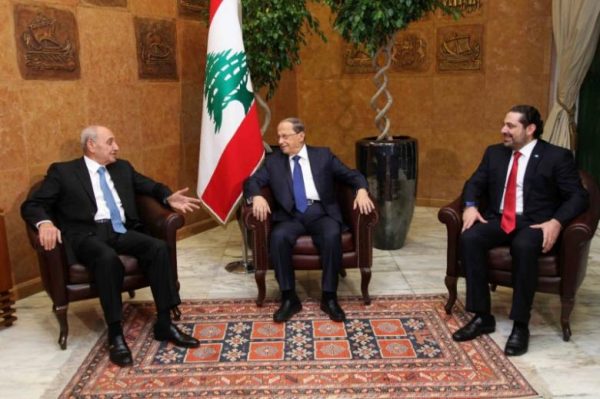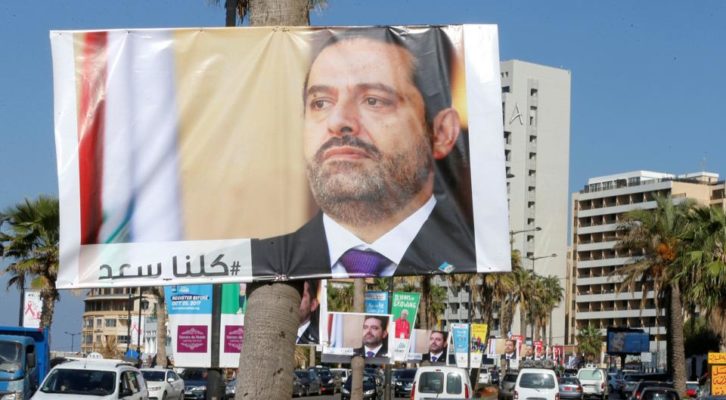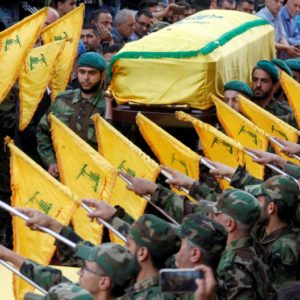The shocking resignation of Lebanese Prime Minister, Saad Hariri, on the 4th of November radically altered the political landscape of West Asia. The declaration was made in Riyadh, and it triggered both a political crisis in Lebanon and rumors speculating whether or not Hariri was under house arrest. Some still insist that he was forced to quit by the Saudi Establishment.
In his resignation speech, televised from Saudi Arabia’s al-Arabiya TV, Hariri expressed fears that he was a target for assassination. Hariri accused Iran and Hezbollah of destabilizing the region and demanded that they both withdraw militias from Syria and cease meddling in the internal affairs of the Gulf. Hariri promised that the Arab world would “cut off the hands that wickedly extend to it”, an expression, some sources close to him insist, that is uncharacteristic of the Lebanese leader’s language.
News channels and social media were full of analyses. Some insisted that the Prime-Minister was detained and forced to resign. Sources close to Hariri -a long-time Saudi ally and son of late prime minister Rafik al-Hariri, who was assassinated in 2005 – argued that he was forced to leave his position because he was unable to confront Hezbollah. Multiple Lebanese sources said Riyadh hopes to replace Saad Hariri with his older brother Bahaa as Lebanon’s top Sunni politician. Reuters mentioned that Bahaa was believed to be in Saudi Arabia and members of the Hariri family have been asked to travel there to pledge allegiance to him, but have refused.
On the other hand, others in his close circle, including allies like the former PM Fuad Siniora, Ahmad Fatfat and Fares Soueid all insisted that the Prime Minister acted on his free will. The common position amongst them all was to encourage people not to focus too much on the way the PM resigned, but rather, to try and assess the reasons for why he resigned in the first place; ie. Hezbollah’s interference in the Gulf affairs.
Since then, most analysts are in agreement that there was some element of coercion involved in Hariri’s televised resignation. Anonymous sources working closely with Hariri contacted Reuters on the 11th of November narrating the events that occurred as soon as Hariri landed in Riyadh. His phone was confiscated, and apparently, in response to a plan deemed inadequate by the Saudis, Hariri was declared an incompetent bulwark against the expansion of Hezbollah, and by extension Iran. And yet still, the multiple accounts of speculation that have attempted to describe the nature of his visit can only be corroborated after his return to Lebanon on Wednesday.
Until very recently, the real question was if Hariri would return back with his family or not. When PM Hariri mentioned in an interview with Paula Yacoubian that he was concerned about the safety of his family, many were perplexed when he also mentioned that his family members were with him in Riyadh. Some speculated that there was a conspiracy by the kingdom to hold his family hostage as leverage for the negotiation table.
We now know though, that both Hariri and his family were offered freedom of movement. Since Saturday the 18th of November, the Hariri family has been staying in France under the auspices of President Macron. On Tuesday he will be visiting Egypt to meet with President Sisi, and on the following day, he will be returning to Lebanon to attend independence day celebrations. “With regards to the political situation in Lebanon,” Hariri told reporters on November the 19th, “I will participate in the independence celebrations, and it is there that I will make known my position on these subjects after meeting President (Michel) Aoun.”
The question that now awaits us is this: will he submit his official resignation to President Michel Aoun on Wednesday? In the aforementioned interview, when Mrs Yacoubian asked whether he will submit his official resignation or not, Hariri responded that he “will perform his duties in a constitutional manner and will discuss the problems with the President”. Hariri avoided using the term “resignation” in his answers, a gesture that must have outraged the Saudis.
Throughout the whole escapade, what was surprising to many was Hezbollah’s backing of the Prime Minister. On two occasions the General Secretary of Hezbollah, Hasan Nasrallah declared that the Prime Minister was held hostage by the Saudis. For Hezbollah, Hariri represents the voice of “moderate Sunnis”, someone who can engage in dialogue and compromise, unlike other Sunnis leaders who are in direct confrontation with Hezbollah.
Hezbollah adores Hariri’s inability to confront it. As a force, Hariri allows for it to avoid open confrontation with Beirut, and to maintain its domestic front. Hezbollah likes having the power to demand limited concessions from the Shia party.

Lebanon’s President Michel Aoun (C) meets with Prime minister-designate Saad al-Hariri (R) and Parliament Speaker Nabih Berri
But for Hariri, that very inability to openly confront Hezbollah’s expansion in Syria and Lebanon means that his popularity must wane with his Sunni electoral base. The already compromised agreement to bring Michel Aoun to the presidency damaged his popularity, and the continuing expansion of Hezbollah will only continue to lower his approval ratings.
Perhaps this explains why in the interview with Mrs Yacoubian, Hariri angrily asked why he must always be the one to compromise; why were all concessions were to be made on his behalf? He even acknowledged the reason for the contempt in his voice: his popularity is in decline.
Although there is no doubt that Hariri’s resignation is motivated by regional considerations, especially from Saudi Arabia, a closer look suggests that the ex-prime minister’s political move is primarily rooted in electoral considerations. His fellow contenders for power, Najib Mikati and Ashraf Rifi in Tripoli and Fuad Makhzumi in Beirut have likewise distanced themselves from broad cross-sectarian alliances to boost their popularity in the Lebanese Sunni community (Hariri’s fellow contenders’ popularity was reflected in the municipal elections where Ashraf Rifi challenged and won the elections in the Northern Sunni stronghold, Tripoli).
Although it is difficult to speculate whether Hezbollah, which has the upper hand in the Lebanese domestic front, may go for a compromise and save Hariri from his desperate situation, it is not clear where and on what issues Hezbollah may compromise. Hariri’s resignation also is a challenge for the President who, in this era, wants to first and foremost preserve the stability of the country.
And in this regard, the President may too push Hezbollah for compromise. It was not surprising that the leader of the Free Patriotic Movement, Foreign Minister Gebran Bassil, a close ally of Hezbollah, stated that the President is open for any kind of dialogue with the Prime Minister.
Hariri’s political manoeuvre may be driven, in a way, to consolidate his position for the upcoming parliamentary elections in Lebanon. But his concern with electoral gains may fuel a regional proxy war and further threaten the renewal of tensions between the various Lebanese groups that have ties with either Iran or KSA. Therefore, Hariri’s demands for concessions from Hezbollah in exchange for preventing the government from falling apart may be a gateway for all the parties to take up such a strategy in the future. In systems based on consociational democracy like Lebanon, to avoid uncertainty and institutional collapse, political parties concerned with the events may push for concessions to preserve an already fragile system based on sectorial balance and political compromise. What we must ask is whether or not there is the political will to protect Lebanon from the challenges she faces ahead.
The article was originally published in theregion.org 20/11/2017
Yeghia Tashjian is currently pursuing his graduate studies in Public Policy and International Affairs at the American University of Beirut. He has graduated from Haigazian University in political science. He is a Lebanese-Armenian political activist, researcher, and blogger. He founded the New Eastern Politics forum/blog in 2010. He was a research assistant at Armenian Diaspora Research Center at Haigazian University. Currently, he is the regional officer of Women in War a gender-based think tank.







